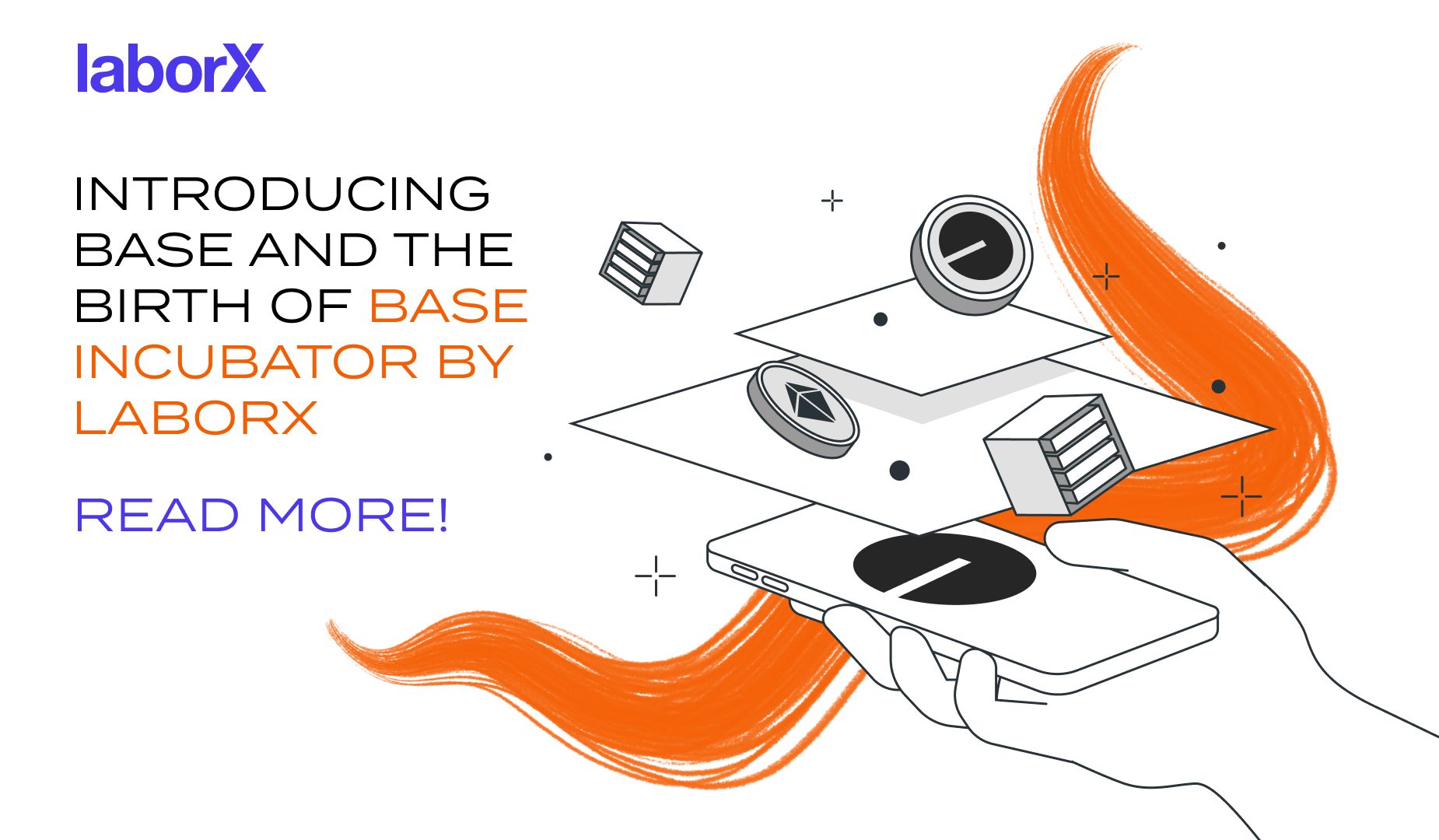❓ What is a blockchain engineer?
A blockchain engineer is a software developer who works with blockchain technology. This can mean either developing the underlying protocol or building applications using the blockchain.

The blockchain sector has seen an explosion of career opportunities in recent years, with blockchain developer skills in high demand as more and more companies explore how these technologies can transform their business. (updated 18.10.2022)
When this article was first published in 2020, blockchain was one of the hottest and most in-demand skills. Despite the lengthy and painful bear market, that doesn’t look like changing any time soon. The need for good engineers is still there, and there are lots of opportunities for talented candidates. Developers from more traditional roles are pivoting and learning how to become a blockchain engineer, while university and online courses are teaching everything from the basics of blockchain through to specific blockchain developer skills like coding smart contracts.
Blockchain isn’t one single idea or platform. Rather, it’s a suite of different technologies that are combined in many different forms, with many variations. So it shouldn’t come as any surprise that the range of roles for blockchain engineers and developers is similarly diverse.
At one end of the scale, a blockchain engineer will be responsible for developing and maintaining the blockchain protocol itself. That might require knowledge of anything and everything from public key cryptography and consensus algorithms to peer-to-peer networking.
At the other end of the scale, it could mean creating applications on top of the blockchain. That could mean integrating blockchain with existing applications, via APIs. Alternatively, if you have the right blockchain developer skills, you might be involved in smart contract programming and building decentralised applications (dApps) that are hosted on the blockchain.
In some ways, then, being a blockchain engineer isn’t so very different to more conventional roles. If you look at the average blockchain developer job description, you’ll see lots that is familiar – such as the languages that will be useful, some of the processes and technologies you’ll use, and so on. But there may be a few surprises, since blockchain development is its own field with plenty of unique terminology, programming languages and frameworks, depending on what role you look for.
The bottom line is that if you have a strong background in software development, there will be some roles you’ll be able to walk right into. But there will be others where you’ll need some very specific skills and experience – and if you don’t have them, you won’t make the cut.
What you will notice, regardless of the role you opt for, is that blockchain engineer salaries are typically significantly higher than equivalent roles in other sectors. Blockchain and cryptocurrency can be a harsh environment, since mistakes can be costly. These are high-responsibility roles at the cutting edge of fintech, and you can expect to be rewarded accordingly.
Just as ‘software development’ is a huge field, so is blockchain. As you’d expect, there can be demand for many different types of engineer and various roles even within the same organisation.
As indicated above, there are two main categories of blockchain developer:
On top of that, there are various technical and development roles that require knowledge of blockchain in the course of work that is directly or indirectly related to it.
This division is not so different to other kinds of software development. For example, you can compare the distinction to developers who build, maintain or customise an operating system like Linux, on the one hand; and those who use that system as the foundation of other apps, on the other.
Both of these roles can be high-responsibility jobs, since they often deal with financial value. The work of the core developer, of course, underpins the security and smooth operation of the blockchain as whole, and therefore that of the apps that run on top of it too.
Meanwhile, the blockchain app developer will not need to worry about gaining an in-depth understanding about consensus algorithms and system architecture. Instead, their work may involve writing smart contracts hosted on the blockchain itself; developing backend software that interfaces with the blockchain; and frontend, UX and UI development.
While these are two of the major categories and some of the chief responsibilities you’ll see in blockchain developer job descriptions, there are plenty of other ways to work with this set of technologies that require much the same skill set and more.
For example, blockchain data scientists will use blockchain developer skills to pull data and insights out of the blockchain, which offers a huge amount of valuable information to the right organisation. It should come as no surprise that data scientist salaries are some of the highest in the space.
There are also lots of security roles for blockchain engineers and others working with blockchain or in organisations that rely on blockchain. These are critical roles that involve uncovering and addressing vulnerabilities both with the blockchain itself, and in the processes that use blockchain – since at any point in the chain, a security breach could lead to catastrophic loss of funds. Additionally, there are roles for cryptographers working with blockchain.
Blockchain jobs are as diverse as software developer jobs in other sectors, and many blockchain developer skills are highly transferable from other areas. In other cases, you’ll need specialist skills or blockchain-specific training.
Web development skills. While blockchain itself provides unique and specialised infrastructure for apps and services, there is still the need to interface with the blockchain via conventional websites and frontends. Conventional web development skills and designing and working with UIs is a fundamental part of this. These are skills that are in-demand across the software development space, and blockchain is no different.
Blockchain architecture. At the other end of the scale, there are skills involved that you won’t have learned in any other area of development – not least because they didn’t even exist a few years ago. As a blockchain engineer tasked with core development, you’ll need to know about all of the different components and technologies that enable blockchain to function. These include consensus algorithms and hash functions that power proof-of-work and proof-of-stake approaches, in all their different variations; you’ll also need an appreciation of the economic incentives and game theory that underpin the blockchain network and those miners who maintain it. Reading white papers for different protocols will be part of your education, as will diving into the code that powers other platforms and makes them what they are. You’ll most likely be picking and choosing from a wide range of different technologies and creating a custom solution that suits your specific needs.
Cryptography. Another strand to the often strange world of blockchain is cryptography. While this is an area that is used in many other applications, it takes on a new significance with blockchain. Public key cryptography is one of the core technologies used in cryptocurrency networks. You’ll need to understand about the different forms of encryption that protect users and underpin the integrity of the shared ledger. There are also cryptographic processes like hash functions that are critical to the way the blockchain works and the process of mining new blocks and chaining them together. While there are certain standards in the blockchain world (like SHA256, BLAKE and Keccak), you’ll need to immerse yourself in the maths of elliptic curve cryptography and stay up to date with the latest developments – ensuring you always have the best tools for the job and staying one step ahead of any attackers.
Smart contracts. One specific blockchain developer skill you’ll find useful is smart contract programming. Smart contracts are scripts that run on the blockchain, and are executed and enforced by miners across the entire blockchain network. These are the foundation of dApps, decentralised applications that operate without any third-party intermediaries. They run exactly as programmed and cannot be interfered with or prevented from executing as written. dApps can be created for any number of use cases, but the storage and transfer of financial value is a very common element of them. Decentralised Finance, or DeFi, is set to become a major use case for dApps and blockchain technology. The reason why smart contract developers are better paid than most developers in other sectors is because a mistake can lead to significant financial losses, and the nature of the blockchain means that a transaction, once made, is final and cannot be reversed.
A new mindset. Lastly, there’s a less tangible skill you’ll need to learn, and it’s not one you’ll read in many job descriptions or courses on how to learn blockchain development. Blockchain is a very different world to conventional systems. It operates on a different paradigm, and along with decentralised software and processes another there’s another mentality at work too. You’ll need to be a fast learner, capable of working on your own and taking the initiative without prompting. You won’t be a clock watcher and will be prepared to put in the work to add value over and above your precise job description. But even more than that, you’ll treat this as more than just another job. Blockchain is the foundation of a new financial movement, and you’ll be at the forefront of that. The sector may no longer be the Wild West, but you’ll still need that pioneer spirit.
As a blockchain engineer, you could end up working in any one of a number of different sectors of the industry. Depending on your interests and skills, you might find opportunities in one or more of the following:
Metaverse. One of the big trends of the last couple of years has been the metaverse. This refers to new, immersive and life-like online experiences, and draws on many other areas of the blockchain space, including NFTs and gaming. The metaverse is big business, with huge corporations (including Facebook, now rebranded Meta) investing serious money in it.
If you’re interested in finding work as a blockchain engineer, then the first step is to make sure you have the right skills. If you don’t, then there are plenty of courses where you can learn the basics, as well as more advanced blockchain developer skills, smart contract programming, and so on.
It will also help to have some practical experience. If you can prove involvement with existing blockchain projects, this will be a bonus in any job applications. You will be able to find lots of opportunities to volunteer, learn and create your own projects on the web – as decentralised technologies, these platforms have communities and initiatives all over the world.
In terms of finding specific jobs, LinkedIn is always a good place to start. Blockchain is now mainstream enough that regular recruitment sites will have lots of opportunities. Another way to explore different careers is to work on a part-time or freelance basis with a project you like; lots of initiatives offer bounties for small pieces of work, and regularly enlist the community for help with finding bugs, refining their products, implementing new ideas, and so on. If you prove your worth, you can often move onto better things on a more permanent basis. And, while you may need to relocate for certain opportunities, others can be done remotely, allowing you to work from home. Given that blockchain engineer salaries can be significantly higher than for other sectors, that’s a great incentive to find a job in this industry.
Blockchain development is a hot area, with many different opportunities across every field from core platform development to building smart contract-powered applications (dApps). Blockchain engineer salaries are typically higher than in other sectors, and you’ll likely have much greater flexibility in terms of working hours. All in all, if you have the right skills, this is a great time to move into an exciting new area and be a part of a global movement that is growing in momentum every day.
A blockchain engineer is a software developer who works with blockchain technology. This can mean either developing the underlying protocol or building applications using the blockchain.
Blockchain developers can broadly be divided into two categories. Core developers are responsible for creating and maintaining the blockchain itself, and will need knowledge of specific areas such as consensus, cryptography, peer-to-peer networking, and so on. Blockchain software developers will use an existing blockchain to build apps, including decentralised applications (dApps) using smart contracts.
Blockchain engineers will need to understand blockchain architecture and cryptography, for core developers. Software developers will need web development skills, a relevant smart contract language (if they’re building dApps), and potentially UI/UX skills.

Hotcoin’s HR shares her journey from traditional industries to the world of Web3 and crypto, highlighting key insights on thriving in this space.
Read
Discover how Web3 is reshaping HR practices with insights from a leading expert in the field.
Read
Discover Base's innovative L2 solution addressing scalability, security, and user experience challenges in crypto. Learn about Base Incubator by LaborX, fostering growth and innovation within the Base ecosystem.
Read